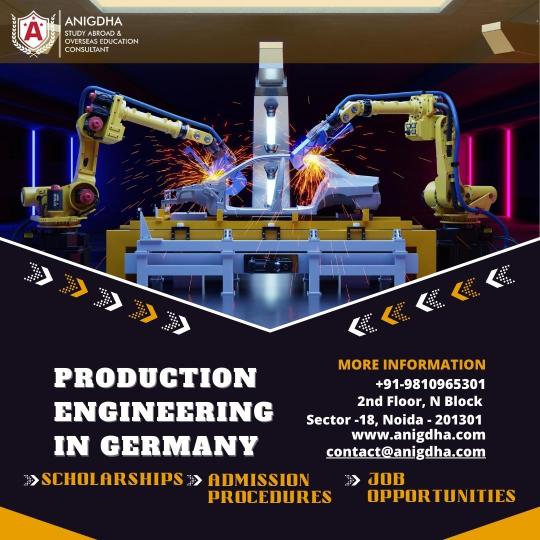#automation education sector
Explore tagged Tumblr posts
Text
What are the next steps after obtaining an insurance broker license, and how can you generate potential leads using Mzapp CRM software?
Congratulations on securing your insurance broker license! The journey doesn’t end here; it’s just the beginning of building a successful insurance brokerage. Here’s how you can proceed and leverage Mzapp CRM software to find potential leads:
Steps After Getting Your Insurance Broker License
Understand Your Market: Research your target audience (individuals, businesses, or specific sectors).
Develop a Business Plan: Set goals for client acquisition, revenue, and operational processes.
Build a Network: Partner with insurance providers and attend industry events to establish your presence.
Create an Online Presence: Build a professional website and maintain active profiles on social platforms.
Offer Value-Added Services: Educate customers on policies, claims management, and risk assessments.
Using Mzapp CRM Software to Generate Leads
Lead Capture: Utilize Mzapp’s integrated forms and web tracking tools to capture inquiries from your website or social media.
Automated Follow-Ups: Set up personalized email and SMS follow-ups to nurture leads effectively.
Lead Scoring: Prioritize leads based on their interaction history, ensuring you focus on high-potential prospects.
Data-Driven Campaigns: Use analytics to identify what works and launch targeted campaigns.
Seamless Policy Management: Impress leads by showcasing how smoothly you manage policies and claims through Mzapp.
Why Choose Mzapp CRM?
Mzapp CRM simplifies lead management, streamlines operations, and provides insights into customer behavior, making it easier to convert prospects into loyal clients.
Learn more about how Mzapp can transform your insurance business here.
#Question:#What are the next steps after obtaining an insurance broker license#and how can you generate potential leads using Mzapp CRM software?#Answer:#Congratulations on securing your insurance broker license! The journey doesn’t end here; it’s just the beginning of building a successful i#Steps After Getting Your Insurance Broker License#Understand Your Market: Research your target audience (individuals#businesses#or specific sectors).#Develop a Business Plan: Set goals for client acquisition#revenue#and operational processes.#Build a Network: Partner with insurance providers and attend industry events to establish your presence.#Create an Online Presence: Build a professional website and maintain active profiles on social platforms.#Offer Value-Added Services: Educate customers on policies#claims management#and risk assessments.#Using Mzapp CRM Software to Generate Leads#Lead Capture: Utilize Mzapp’s integrated forms and web tracking tools to capture inquiries from your website or social media.#Automated Follow-Ups: Set up personalized email and SMS follow-ups to nurture leads effectively.#Lead Scoring: Prioritize leads based on their interaction history#ensuring you focus on high-potential prospects.#Data-Driven Campaigns: Use analytics to identify what works and launch targeted campaigns.#Seamless Policy Management: Impress leads by showcasing how smoothly you manage policies and claims through Mzapp.#Why Choose Mzapp CRM?#Mzapp CRM simplifies lead management#streamlines operations#and provides insights into customer behavior#making it easier to convert prospects into loyal clients.#Learn more about how Mzapp can transform your insurance business here.
1 note
·
View note
Text
Rask AI: The Socratic Lab That Will Change Education Forever
Discover how Rask AI enhances accuracy in transcription, seamlessly converting audio to text with automated transcription technology. This means better accessibility and inclusivity in education, allowing for a more engaging learning environment for everyone. With its creative solutions, Rask AI is set to redefine media interaction, providing multilingual content that caters to diverse audiences.

#AI advancements#AI in education#Rask AI#accuracy in transcription#audio to text#automated transcription#content innovation#creative solutions#dubbing solutions#dubbing technology#energy sector tools#enhanced communication#global communication#global inclusivity#inclusivity in education#innovative features#media interaction#multilingual content#seamless conversion#smart tutoring#technology for creators#video production#voice cloning#voice technology
1 note
·
View note
Text
Fully Integrated ERP Solution for Education Sector

In the rapidly evolving digital landscape, educational institutions are investing heavily in technology to enhance efficiency and reduce operational costs. To streamline internal processes and communication, Education Resource Planning (ERP) systems have become essential. PrideEdu stands out as a fully integrated ERP solution in the education sector, renowned for its scalability, security, and customizable features. It facilitates smooth daily activities for administrators and teachers, ensuring effective institution management. Additionally, it keeps parents updated on their children's progress. The benefits of PrideEdu include process automation, simplified classroom management, optimized learning experiences, instant access to actionable insights, and streamlined administrative tasks such as admissions, attendance, and fee management. It also offers real-time access to data, user-friendly interfaces, and integrated modules for comprehensive management. By reducing manual workloads and facilitating communication among stakeholders, PrideEdu contributes to smoother operations and improved educational outcomes.
For more Information visit: https://pridesys.com/product/pridecut/
Contact us:
E-mail: [email protected];
Phone: +8801550000003-8, 01550000035
#PrideEdu#ERP solution#Education sector#Institution management#Process automation#Classroom management#Learning experiences#Administrative tasks#User-friendly interfaces#Stakeholder communication
1 note
·
View note
Text


Head Office : 2nd Floor, N Block, Opposite - Axis Bank,
Sector -18, Noida - 201301




#Ready to shape the future? 🌟 Unleash your potential by studying Embedded Engineering in Germany! 🚀🇩🇪 Dive into a world of cutting-edge tech#where you'll gain hands-on experience and top-notch education. From smart devices to automation#immerse yourself in a curriculum designed to fuel your innovation. 🛠️💡#Germany's renowned engineering heritage becomes your classroom as you collaborate with experts and work on real-world projects. 🌐👩🔬 Whethe#IoT#or automotive systems#the possibilities are limitless. Embrace a multicultural environment that nurtures your growth and widens your horizons. 🌍👨🎓 Join the rank#StudyEmbeddedEngineering#GermanyEducation#InnovationHub#https://www.anigdha.com/embedded-engineering-in-germany/#Head Office : 2nd Floor#N Block#Opposite - Axis Bank#Sector -18#Noida - 201301#☎️ 𝐂𝐚𝐥𝐥 𝐔𝐬 𝐍𝐨𝐰: +91- 9810965301#🌐 𝐖𝐞𝐛𝐬𝐢𝐭𝐞: https://www.anigdha.com#📩 𝐄𝐦𝐚𝐢𝐥: [email protected]
0 notes
Text
DAY 6274
Jalsa, Mumbai Aopr 20, 2025 Sun 11:17 pm
🪔 ,
April 21 .. birthday greetings and happiness to Ef Mousumi Biswas .. and Ef Arijit Bhattacharya from Kolkata .. 🙏🏽❤️🚩.. the wishes from the Ef family continue with warmth .. and love 🌺
The AI debate became the topic of discussion on the dining table ad there were many potent points raised - bith positive and a little indifferent ..
The young acknowledged it with reason and able argument .. some of the mid elders disagreed mildly .. and the end was kind of neutral ..
Blessed be they of the next GEN .. their minds are sorted out well in advance .. and why not .. we shall not be around till time in advance , but they and their progeny shall .. as has been the norm through generations ...
The IPL is now the greatest attraction throughout the day .. particularly on the Sunday, for the two on the day .. and there is never a debate on that ..
🤣
.. and I am most appreciative to read the comments from the Ef on the topic of the day - AI .. appreciative because some of the reactions and texts are valid and interesting to know .. the aspect expressed in all has a legitimate argument and that is most healthy ..
I am happy that we could all react to the Blog contents in the manner they have done .. my gratitude .. such a joy to get different views , valid and meaningful ..
And it is not the end of the day or the debate .. some impressions of the Gen X and some from the just passed Gen .. and some that were never ever the Gen are interesting as well :
The Printing Press (15th Century)
Fear: Scribes, monks, and elites thought it would destroy the value of knowledge, lead to mass misinformation, and eliminate jobs. Reality: It democratized knowledge, spurred the Renaissance and Reformation, and created entirely new industries—publishing, journalism, and education.
⸻
Industrial Revolution (18th–19th Century)
Fear: Machines would replace all human labor. The Luddites famously destroyed machinery in protest. Reality: Some manual labor jobs were displaced, but the economy exploded with new roles in manufacturing, logistics, engineering, and management. Overall employment and productivity soared.
⸻
Automobiles (Early 20th Century)
Fear: People feared job losses for carriage makers, stable hands, and horseshoe smiths. Cities worried about traffic, accidents, and social decay. Reality: The car industry became one of the largest employers in the world. It reshaped economies, enabled suburbia, and created new sectors like travel, road infrastructure, and auto repair.
⸻
Personal Computers (1980s)
Fear: Office workers would be replaced by machines; people worried about becoming obsolete. Reality: Computers made work faster and created entire industries: IT, software development, cybersecurity, and tech support. It transformed how we live and work.
⸻
The Internet (1990s)
Fear: It would destroy jobs in retail, publishing, and communication. Some thought it would unravel social order. Reality: E-commerce, digital marketing, remote work, and the creator economy now thrive. It connected the world and opened new opportunities.
⸻
ATMs (1970s–80s)
Fear: Bank tellers would lose their jobs en masse. Reality: ATMs handled routine tasks, but banks actually hired more tellers for customer service roles as they opened more branches thanks to reduced transaction costs.
⸻
Robotics & Automation (Factory work, 20th century–today)
Fear: Mass unemployment in factories. Reality: While some jobs shifted or ended, others evolved—robot maintenance, programming, design. Productivity gains created new jobs elsewhere.
The fear is not for losing jobs. It is the compromise of intellectual property and use without compensation. This case is slightly different.
I think AI will only make humans smarter. If we use it to our advantage.
That’s been happening for the last 10 years anyway
Not something new
You can’t control that in this day and age
YouTube & User-Generated Content (mid-2000s onward)
Initial Fear: When YouTube exploded, many in the entertainment industry panicked. The fear was that copyrighted material—music, TV clips, movies—would be shared freely without compensation. Creators and rights holders worried their content would be pirated, devalued, and that they’d lose control over distribution.
What Actually Happened: YouTube evolved to protect IP and monetize it through systems like Content ID, which allows rights holders to:
Automatically detect when their content is used
Choose to block, track, or monetize that usage
Earn revenue from ads run on videos using their IP (even when others post it)
Instead of wiping out creators or studios, it became a massive revenue stream—especially for musicians, media companies, and creators. Entire business models emerged around fair use, remixes, and reactions—with compensation built in.
Key Shift: The system went from “piracy risk” to “profit partner,” by embracing tech that recognized and enforced IP rights at scale.
This lead to higher profits and more money for owners and content btw
You just have to restructure the compensation laws and rewrite contracts
It’s only going to benefit artists in the long run
Yes
They can IP it
That is the hope
It’s the spread of your content and material without you putting a penny towards it
Cannot blindly sign off everything in contracts anymore. Has to be a lot more specific.
Yes that’s for sure
“Automation hasn’t erased jobs—it’s changed where human effort goes.”
Another good one is “hard work beats talent when talent stops working hard”
Which has absolutely nothing to with AI right now but 🤣
These ladies and Gentlemen of the Ef jury are various conversational opinions on AI .. I am merely pasting them for a view and an opinion ..
And among all the brouhaha about AI .. we simply forgot the Sunday well wishers .. and so ..














my love and the length be of immense .. pardon

Amitabh Bachchan
101 notes
·
View notes
Text
The article under the cut
Allies of Elon Musk stationed within the Education Department are considering replacing some contract workers who interact with millions of students and parents annually with an artificial intelligence chat bot, according to internal department documents and communications.
The proposal is part of President Trump’s broader effort to shrink the federal work force, and would mark a major change in how the agency interacts with the public. The Education Department’s biggest job is managing billions of dollars in student aid, and it routinely fields complex questions from borrowers.
The department currently uses both call centers and a rudimentary A.I. bot to answer questions. The proposal would introduce generative A.I., a more sophisticated version of artificial intelligence that could replace many of those human agents.
The call centers employ 1,600 people who field over 15,000 questions per day from student borrowers.
The vision could be a model for other federal agencies, in which human beings are replaced by technology, and behemoth contracts with outside companies are shed or reduced in favor of more automated solutions. In some cases, that technology was developed by players from the private sector who are now working inside or with the Trump administration.
Mr. Musk has significant interest in A.I. He founded a generative A.I. company, and is also seeking to gain control of OpenAI, one of the biggest players in the industry. At other agencies, workers from the newly created Department of Government Efficiency, headed by Mr. Musk, have told federal employees that A.I. would be a significant part of the administration’s cost-cutting plans.
A year after the Education Department oversaw a disastrous rollout of a new federal student aid application, longtime department officials say they are open to the idea of seeking greater efficiencies, as have leaders in other federal agencies. Many are partnering with the efficiency initiative.
But Department of Education staff have also found that a 38 percent reduction in funding for call center operations could contribute to a “severe degradation” in services for “students, borrowers and schools,” according to one internal document obtained by The Times.
The Musk associates working inside the Education Department include former executives from education technology and venture capital firms. Over the past several years, those industries have invested heavily in creating A.I. education tools and marketing them to schools, educators and students.
The Musk team at the department has focused, in part, on a help line that is currently operated on a contract basis by Accenture, a consulting firm, according to the documents reviewed by The Times. The call center assists students who have questions about applying for federal Pell grants and other forms of tuition aid, or about loan repayment.
The contract that includes this work has sent more than $700 million to Accenture since 2019, but is set to expire next week.
“The department is open to using tools and systems that would enhance the customer service, security and transparency of data for students and parents,” said Madi Biedermann, the department’s deputy assistant secretary for communications. “We are evaluating all contracts to assess effectiveness relative to costs.”
Accenture did not respond to interview requests. A September report from the Education Department describes 1,625 agents answering 462,000 calls in one month. The agents also handled 118,000 typed chats.
In addition to the call line, Accenture provides a broad range of other services to the student aid system. One of those is Aidan, a more rudimentary virtual assistant that answers basic questions about student aid. It was launched in 2019, during Mr. Trump’s first term.
Accenture reported in 2021 that Aidan fielded 2.2 million messages in one year. But its capabilities fall far short of what Mr. Musk’s associates envision building using generative A.I., according to the internal documents.
Both Mr. Trump and former President Joseph R. Biden Jr. directed federal agencies to look for opportunities to use A.I. to better serve the public.
The proposal to revamp the communication system follows a meltdown in the rollout of the new Free Application for Federal Student Aid, or FAFSA, last year under Mr. Biden. As FAFSA problems caused mass confusion for students applying for financial aid, several major contractors, including Accenture, were criticized for breakdowns in the infrastructure available to students and parents seeking answers and help.
From January through May last year, roughly three-quarters of the 5.4 million calls to the department’s help lines went unanswered, according to a report by the Government Accountability Office.
More than 500 workers have since been added to the call centers, and wait times were significantly reduced, according to the September Department of Education report.
But transitioning into using generative A.I. for student aid help, as a replacement for some or all human call center workers, is likely to raise questions around privacy, accuracy and equal access to devices, according to technology experts.
Generative A.I. systems still sometimes share information that is false.
Given how quickly A.I. capabilities are advancing, those challenges are potentially surmountable, but should be approached methodically, without rushing, said John Bailey, a fellow at the American Enterprise Institute and former director of educational technology at the Education Department under President George W. Bush.
Mr. Bailey has since become an expert on the uses of A.I. in education.
“Any big modernization effort needs to be rolled out slowly for testing, to see what works and doesn’t work,” he said, pointing to the botched introduction of the new FAFSA form as a cautionary tale.
“We still have kids not in college because of that,” he said.
In recent weeks, the Education Department has absorbed a number of DOGE workers, according to two people familiar with the process, who requested anonymity because they were not authorized to discuss the department’s security procedures and feared for their jobs.
One of the people involved in the DOGE efforts at the Education Department is Brooks Morgan, who until recently was the chief executive of Podium Education, an Austin-based start-up, and has also worked for a venture capital firm focused on education technology, according to the two people.
Another new staffer working at the agency is Alexandra Beynon, the former head of engineering at Mindbloom, a company that sells ketamine, according to those sources and an internal document.
And a third is Adam Ramada, who formerly worked at a Miami venture capital firm, Spring Tide Capital, which invests in health technology, according to an affidavit in a lawsuit filed against the Department of Government Efficiency.
None of those staffers responded to interview requests.
41 notes
·
View notes
Text
Glimpses of Academic Procession - Graduation Ceremony, KCC ILHE Batch 2019
On October 28, 2023, the KCC Institute of Legal & Higher Education in Greater Noida held its Convocation for the graduating class of 2019-2022. The atmosphere was charged with excitement as the graduates eagerly awaited the moment when they would officially receive their degrees. The event commenced with a formal academic procession featuring distinguished guests, academic faculty, and the graduating students making their grand entrance.
The chief guest for the occasion was Padma shri Prof. (Dr.) Mahesh Verma, Vice Chancellor of GGSIPU. He delivered an inspiring convocation address, imparting valuable life lessons and insights to the graduating class of BBA, BCOM(H), BCA and BAJMC.
Graduates were bestowed with their degrees and accompanied by warm congratulations and well-wishes in presence of distinguished representatives from various sectors of the industry, as well as esteemed members of the academic council of KCCILHE.
Shri Pankaj Rai, Managing Director , Quality Austria Central Asia Private Limited
Dr. Lovneesh Chanana, Sr. Vice President & Regional Head for Government Affairs (Asia Pacific and Japan)
Advocate Shri Rajeev Tyagi, Member and Advisor, TAC, Ministry of Telecommunication, GOI.
Prof Vijita Singh Aggarwal, Director, International Affairs, GGSIPU
Professor (Dr.) Amrapal Singh Dean, USLLS.
Shri Sunil Mirza, GM (North India) Hindu Group of Publications.
Shri Atul Tripathi sir, Data Scientist
Shri Buba F Keinteh, Financial Attache Gambia Embassy.
Shri Pradip Bagchi, Senior Editor, Times of India.
Shri Vivek Narayan Sharma ,Advocate & Ex Joint Secretary, Supreme Court of India.
Biswajit Bhattacharya, Lead Client Partner, Automative Industry Leader India South Asia, IBM India Private limited.
Shri Dhruba Jyoti Pati , Director India Today Media Institute.
Shri Anil Singh, Manager, The Hindu City
Ceremony ended with pledging honor to our country by singing the national anthem. Subsequently, the celebration continued with a delightful lunch, memorable photo sessions, and the exchange of heartfelt messages among the attendees. The graduation ceremony concluded on a note of jubilation, leaving the graduates inspired to strive for greatness in their future endeavors.



62 notes
·
View notes
Text
Minimum Wages Act Compliance for Corporates in India
Introduction

The Minimum Wages Act, 1948, is a crucial labor law in India that ensures fair wages for workers in various industries. It sets a legal minimum wage that employers must pay to prevent exploitation and promote economic justice. Corporates operating in India must comply with this Act to avoid legal repercussions and ensure fair employee compensation.
Key Provisions of the Minimum Wages Act
The Act mandates several essential compliance measures, including:
1. Applicability of the Act
The Act applies to scheduled employments specified by the Central and State Governments.
Covers all businesses employing workers in industrial, commercial, or other specified sectors.
2. Fixation and Revision of Wages
The government prescribes minimum wages based on skill level, nature of work, and region.
Wages are revised periodically to accommodate inflation and economic conditions.
3. Payment of Wages
Wages must be paid within the stipulated time frame (weekly, bi-weekly, or monthly).
Employers must not deduct wages unlawfully except for legally permitted reasons.
4. Overtime and Working Hours
Any work beyond the prescribed working hours must be compensated at overtime rates.
Ensures compliance with regulated work schedules to prevent exploitation.
5. Penalties for Non-Compliance
Failure to comply can lead to penalties, including fines and imprisonment.
Non-payment of minimum wages can result in legal actions and reputational damage.
Compliance Challenges for Corporates
Corporates often face challenges in adhering to the Minimum Wages Act, such as:
Navigating State-Specific Regulations: Different states have varied minimum wage structures.
Managing Large Workforce Compliance: Ensuring accurate payroll compliance across multiple locations.
Keeping Up with Wage Revisions: Frequent revisions by authorities require constant monitoring.
Avoiding Legal Liabilities: Non-compliance can result in lawsuits and penalties.
How Corporates Can Ensure Compliance
Regular Wage Audits: Conduct periodic payroll audits to ensure compliance with wage laws.
Automate Payroll Systems: Use software solutions to track minimum wage updates and payroll adjustments.
Seek Legal Expertise: Engage labour law consultants for expert guidance on compliance.
Employee Awareness Programs: Educate employees on their wage rights and grievance redressal mechanisms.
Monitor State Notifications: Stay updated on government notifications regarding wage revisions.
Ensuring compliance with the Minimum Wages Act is not just a legal obligation but also a commitment to fair labour practices. Corporates must proactively implement wage regulations to foster a compliant and ethical work environment. Non-compliance can lead to legal issues and financial penalties, making it imperative for businesses to integrate wage compliance as part of their corporate governance framework.
For professional assistance on Minimum Wages Act compliance, contact Sankhla Corporate Services Pvt. Ltd. at www.sankhlaco.com.
#MinimumWagesAct#LabourLaw#CorporateCompliance#FairWages#WageRegulations#EmployeeRights#IndianLabourLaws#LegalCompliance#PayrollManagement#WorkplaceEthics#LabourWelfare#BusinessCompliance#WageProtection#EmploymentLaw#SankhlaCorporateServices#environmentalcompliance
3 notes
·
View notes
Text
AI and Neural Networks: Transforming the Future
The COVID-19 pandemic has pushed the incorporation of Artificial Intelligence in the education industry, changing it into a powerful tool for learning and adaptation. In education, AI and Neural Networks are directing a significant revolution, adding to personalized learning, automating tasks, and offering insights into student performance amid global and Indian challenges like access variations and advancing teaching methods. AI in education draws inspiration from psychological studies on learning in humans and animals, utilizing machine learning to derive knowledge from data, which is particularly beneficial in the complex educational environment due to the diverse data distribution and vast datasets available for exploration.
In personalized and adaptive learning environments, the learning path adjusts continuously based on individual student characteristics and knowledge levels, optimizing learning outcomes conveniently. Integrating AI, big data, and network technologies is remodelling traditional classrooms into dynamic smart classrooms, increasing interactive learning experiences, and facilitating personalized education tailored to individual student needs. Neural networks in education boost feedback, assessment, and personalized learning by analyzing student data and fostering collaboration through online tools and platforms. Neural networks also support, intelligent tutoring systems like Knewton, and educational games such as DragonBox, fostering interactive and immersive learning environments.
Bringing some facts into light, the AI in the education market is expected to peak, from $3.79 U.S. dollars in 2022 to a whopping $20.54 U.S. dollars in 2027. Until today, the worldwide market for AI in education has witnessed significant growth, expanding from USD 537.3 million in 2018 to USD 3,683.5 million by 2023. According to a market forecast by Statista, in 2019, the worldwide e-learning market was valued at nearly $200 billion.
Citing few examples, in the process of theme logo design in a research study based on a digital network learning platform, AI computer-aided art teaching model has played an important role. A convolutional neural network (CNN) model for fuzzy classification, classifies gesture images into four blur categories: motion, defocus, Gaussian, and box blur. Furthermore, a Google scholar proposed an online oral English teaching platform based on the Internet of Things (IoT) to overcome the problems of low fluency and operability of the current online oral English teaching platform. A virtual teaching environment is constructed. A spoken English teaching system is used to correct the user's pronunciation and mouth movements.
AI has significantly strengthened education through applications like personalized learning, chatbots, virtual tutors, content recommendation systems, automated grading, and language processing tools. In India, platforms like SWAYAM has adopted AI to provide personalized learning experiences, expanding access to high-quality education. Founded in 2011, BYJU's has transformed the Indian edtech sector by leveraging Neural Networks (NN) and Artificial Intelligence (AI) to deliver personalized learning experiences, evaluating student interactions to adapt content dynamically and provide targeted support across K-12 education and competitive exam preparation globally. Founded in 2012, Coursera leverages Artificial Intelligence (AI) and Neural Networks (NN) to lift global online learning experiences through automated grading and personalized course recommendations tailored to individual interests and career goals, thereby raising grading proficiency and student engagement while improving course completion rates. Duolingo has reformed global language education with its AI-driven platform that personalizes learning through neural networks, offering interactive features like pronunciation analysis, grammar checking, and customized practice sessions to elevate user proficiency and engagement.
From online textbooks to remote lectures, AI is upgrading and automating various aspects of education. This progress holds huge potential for building learning outcomes for both students and educators. With AI as a valuable tool, the future of education looks promising, fostering a more efficient and inclusive learning environment for all. In conclusion, the integration of AI and NN has led the way for a new era of education, offering creative solutions to challenges, modifying the learning experience. As we navigate the future, responsible adoption, ethical considerations, and a commitment to equity will be essential in realizing the altering power of these technologies.
2 notes
·
View notes
Text
Profitable Business Ideas for 2025
As we step into 2025, the business landscape is evolving rapidly. With advancing technology, changing consumer needs, and increasing digital adoption, new opportunities are emerging. Whether you want to start a full-time venture or a side hustle, choosing the right business is key to success. Here are some of the most promising business ideas for 2025.
1. Artificial Intelligence-Based Businesses
AI is revolutionizing industries, and businesses that integrate AI solutions will thrive. Some ideas include:
AI-Driven Virtual Assistants for Businesses
AI-Powered Personalized Shopping Experiences
AI Tools for Content Generation and Automation
2. Sustainable & Eco-Friendly Ventures
With rising environmental concerns, sustainable businesses are in high demand. You can start:
Zero-Waste Packaging Solutions
Renewable Energy Consulting & Solar Panel Installation
Eco-Friendly Fashion and Accessories
3. E-Commerce & Online Selling
The online marketplace continues to expand. If you want to start an e-commerce business, consider:
Customized Print-on-Demand Products
Niche Subscription Boxes (organic food, pet treats, etc.)
Selling Digital Products like E-books & Templates
4. Health & Wellness Businesses
The health sector is booming as people become more health-conscious. Profitable options include:
Virtual Fitness Training & Home Workout Plans
Organic & Herbal Supplement Business
Meditation & Mental Health Coaching
5. Digital Marketing & Branding Services
Businesses are investing heavily in their online presence. You can offer:
SEO & Content Marketing Solutions
Social Media Management & Growth Strategies
PPC Advertising & Influencer Marketing Services
6. Freelancing & Remote Work Opportunities
The freelance industry is thriving. If you have a skill, you can monetize it through:
Professional Blogging & Copywriting Services
Graphic Design & Website Development
Virtual Assistant & Administrative Support
7. Online Education & Coaching
E-learning is growing exponentially, and you can take advantage by offering:
Creating & Selling Digital Courses
Career Guidance & Resume Writing Services
Language & Soft Skills Training
8. Tech Startups & Software Development
Tech solutions are in high demand, making software development a lucrative field. Ideas include:
SaaS (Software as a Service) Solutions for Businesses
Mobile Apps for Personal Productivity & Business Management
Web3 & Blockchain-Based Platforms
9. Food & Beverage Industry Innovations
Food-related businesses continue to evolve with consumer preferences. Some trending ideas are:
Cloud Kitchen & Food Delivery Business
Organic & Plant-Based Snack Manufacturing
Specialty Coffee, Tea, or Juice Bars
10. Pet Care & Accessories Business
The pet industry is booming, providing great business opportunities. Consider:
Selling Organic & Handmade Pet Products
Professional Pet Grooming Services
Personalized Pet Clothing & Accessories
Conclusion
The year 2025 offers numerous business opportunities across various sectors. To succeed, choose a business that aligns with your skills, interests, and market demand. By staying innovative and customer-focused, you can build a profitable and sustainable business.
2 notes
·
View notes
Text
The Future of Artificial Intelligence: Expectations and Possibilities
Artificial Intelligence (AI) is remodeling nearly every element of our lives, from how we work and speak to how we entertain ourselves and clear up complicated problems. As AI maintains to increase, it raises fundamental questions on the future, consisting of how it'll reshape industries, impact society, or even redefine what it manner to be human. This essay explores the predicted future of AI, specializing in improvements, ethical issues, and capacity demanding situations.

Future Of Artifical Intelligence In India
Advancements in AI
AI is advancing at an exceptional price, with several key areas poised for substantial breakthroughs:
1. Machine Learning and Deep Learning
Machine mastering and deep getting to know have driven a whole lot of AI’s development, allowing systems to apprehend patterns, process massive amounts of facts, and make predictions with high accuracy. Future traits in those regions are anticipated to improve AI’s ability to generalize knowledge, decreasing the need for big education statistics and enhancing overall performance across numerous tasks.
2. Natural Language Processing (NLP)
AI’s potential to understand and generate human language has seen fantastic progress through models like GPT-4 and beyond. Future iterations will probable cause extra fluent, nuanced, and context-aware interactions, making AI an even extra valuable device for communique, content material introduction, and translation.
Three. Autonomous Systems and Robotics
Autonomous automobiles, drones, and robotic assistants are becoming increasingly sophisticated. In the future, we can expect AI-powered robots to be greater adaptable and able to performing complicated duties with greater performance. From self-riding vehicles to robot surgeons, AI’s position in automation will expand across more than one sectors.
4. AI in Healthcare
AI is revolutionizing healthcare through early ailment detection, customized medicine, and robotic-assisted surgeries. In the future, AI will allow medical doctors to diagnose situations extra appropriately and offer tailored remedy plans, in the long run enhancing affected person results and extending human lifespan.
5. AI in Creativity and the Arts
AI-generated artwork, tune, and literature are already tough conventional notions of creativity. Future advancements will blur the line among human and gadget-generated creativity, main to new sorts of artistic expression and collaboration.
Ethical and Social Considerations
As AI maintains to strengthen, it brings forth essential ethical and social demanding situations that must be addressed:
1. Bias and Fairness
AI systems regularly reflect biases found in their schooling data, that may cause unfair or discriminatory outcomes. Researchers and builders are operating on ways to create extra honest and independent AI fashions, but this remains an ongoing mission.
2. Job Displacement and Workforce Evolution
Automation powered through AI is expected to replace positive jobs even as developing new ones. While some worry big task losses, others accept as true with AI will enhance human paintings in preference to replace it. Preparing the team of workers for an AI-pushed economic system would require reskilling programs and new instructional procedures.
3. Privacy and Surveillance
AI’s ability to system large amounts of private statistics increases extensive privacy worries. Striking a stability among innovation and protecting man or woman rights might be vital to make certain AI’s responsible development and deployment.
4. AI Governance and Regulation
Ensuring AI is used ethically and responsibly requires effective regulations and governance frameworks. Governments and global agencies are operating to establish suggestions to prevent AI from being misused for malicious functions, such as deepfakes or cyberattacks.
Challenges and Potential Risks
Despite AI’s ability, there are numerous demanding situations and dangers that should be taken into consideration:
1. AI Alignment Problem
Ensuring that AI systems align with human values and dreams is a good sized undertaking. Misaligned AI could lead to unintended outcomes, making it critical to design AI that prioritizes human well-being.
2. Superintelligence and Existential Risks
The opportunity of growing superintelligent AI—structures that surpass human intelligence—increases worries approximately manipulate and safety. Researchers emphasize the significance of enforcing safeguards to save you AI from acting in approaches that might be harmful to humanity.
Three. Ethical Dilemmas in AI Decision-Making
As AI takes on greater duties, it's going to face ethical dilemmas, including figuring out who gets get right of entry to to restrained medical resources or figuring out the route of movement in autonomous motors at some point of injuries. Addressing those dilemmas calls for moral AI layout and obvious decision-making processes.
Top 10 Emerging Tech Trends In 2025
#Future Of Artifical Intelligence In India#artifical intelligence#machine learning#tech#digital marketing
2 notes
·
View notes
Text
It all goes back to Mozart. When the musical mastermind composed his 14th string quartet in G major (K. 387) in 1782, he needed four people to perform it. Now, 250 years later, it still requires exactly four. If you’re looking to up your violin’s production capacity, the most you can do is play a little faster. Put another way: Some things in life, like music, resist all attempts at greater efficiency. While we can produce coffee machines ever faster and more cheaply, a violinist can’t pick up the pace without spoiling the tune. In our race against the machine, it’s only logical that we’ll continue to spend less on products that can be easily made more efficiently and more on labor-intensive services and amenities such as art, healthcare, education, and safety. It’s no accident that countries that score high on well-being, like Denmark, Sweden, and Finland, have a large public sector. Their governments subsidise the domains where productivity can’t be leveraged. Unlike the manufacture of a fridge or a car, history lessons and doctor’s checkups can’t simply be made “more efficient.” The natural consequence is that the government is gobbling up a growing share of the economic pie. First noted by the economist William Baumol in the 1960s, this phenomenon, now known as “Baumol’s cost disease,” basically says that prices in labor-intensive sectors such as healthcare and education increase faster than prices in sectors where most of the work can be more extensively automated. But hold on a minute. Shouldn’t we be calling this a blessing, rather than a disease? After all, the more efficient our factories and our computers, the less efficient our healthcare and education need to be; that is, the more time we have left to attend to the old and infirm and to organise education on a more personal scale. Which is great, right? According to Baumol, the main impediment to allocating our resources toward such noble ends is “the illusion that we cannot afford them. As illusions go, this one is pretty stubborn. When you’re obsessed with efficiency and productivity, it’s difficult to see the real value of education and care. Which is why so many politicians and taxpayers alike see only costs. They don’t realise that the richer a country becomes the more it should be spending on teachers and doctors. Instead of regarding these increases as a blessing, they’re viewed as a disease.
Rutger Bregman, Utopia For Realists: And How We Can Get There
16 notes
·
View notes
Text
AI & IT'S IMPACT
Unleashing the Power: The Impact of AI Across Industries and Future Frontiers
Artificial Intelligence (AI), once confined to the realm of science fiction, has rapidly become a transformative force across diverse industries. Its influence is reshaping the landscape of how businesses operate, innovate, and interact with their stakeholders. As we navigate the current impact of AI and peer into the future, it's evident that the capabilities of this technology are poised to reach unprecedented heights.
1. Healthcare:
In the healthcare sector, AI is a game-changer, revolutionizing diagnostics, treatment plans, and patient care. Machine learning algorithms analyze vast datasets to identify patterns, aiding in early disease detection. AI-driven robotic surgery is enhancing precision, reducing recovery times, and minimizing risks. Personalized medicine, powered by AI, tailors treatments based on an individual's genetic makeup, optimizing therapeutic outcomes.
2. Finance:
AI is reshaping the financial industry by enhancing efficiency, risk management, and customer experiences. Algorithms analyze market trends, enabling quicker and more accurate investment decisions. Chatbots and virtual assistants powered by AI streamline customer interactions, providing real-time assistance. Fraud detection algorithms work tirelessly to identify suspicious activities, bolstering security measures in online transactions.
3. Manufacturing:
In manufacturing, AI is optimizing production processes through predictive maintenance and quality control. Smart factories leverage AI to monitor equipment health, reducing downtime by predicting potential failures. Robots and autonomous systems, guided by AI, enhance precision and efficiency in tasks ranging from assembly lines to logistics. This not only increases productivity but also contributes to safer working environments.
4. Education:
AI is reshaping the educational landscape by personalizing learning experiences. Adaptive learning platforms use AI algorithms to tailor educational content to individual student needs, fostering better comprehension and engagement. AI-driven tools also assist educators in grading, administrative tasks, and provide insights into student performance, allowing for more effective teaching strategies.
5. Retail:
In the retail sector, AI is transforming customer experiences through personalized recommendations and efficient supply chain management. Recommendation engines analyze customer preferences, providing targeted product suggestions. AI-powered chatbots handle customer queries, offering real-time assistance. Inventory management is optimized through predictive analytics, reducing waste and ensuring products are readily available.
6. Future Frontiers:
A. Autonomous Vehicles: The future of transportation lies in AI-driven autonomous vehicles. From self-driving cars to automated drones, AI algorithms navigate and respond to dynamic environments, ensuring safer and more efficient transportation. This technology holds the promise of reducing accidents, alleviating traffic congestion, and redefining mobility.
B. Quantum Computing: As AI algorithms become more complex, the need for advanced computing capabilities grows. Quantucm omputing, with its ability to process vast amounts of data at unprecedented speeds, holds the potential to revolutionize AI. This synergy could unlock new possibilities in solving complex problems, ranging from drug discovery to climate modeling.
C. AI in Creativity: AI is not limited to data-driven tasks; it's also making inroads into the realm of creativity. AI-generated art, music, and content are gaining recognition. Future developments may see AI collaborating with human creators, pushing the boundaries of what is possible in fields traditionally associated with human ingenuity.
In conclusion, the impact of AI across industries is profound and multifaceted. From enhancing efficiency and precision to revolutionizing how we approach complex challenges, AI is at the forefront of innovation. The future capabilities of AI hold the promise of even greater advancements, ushering in an era where the boundaries of what is achievable continue to expand. As businesses and industries continue to embrace and adapt to these transformative technologies, the synergy between human intelligence and artificial intelligence will undoubtedly shape a future defined by unprecedented possibilities.
20 notes
·
View notes
Text





#StudyAbroad#ProductionEngineering#GermanyEducation#engineeringlife
Head Office : 2nd Floor, N Block, Opp - Axis Bank,
Sector -18, Noida - 201301
Call us / Whatsapp
+91-9810965301
General Enquiries
#🇩🇪🎓 Study Production Engineering in Germany! 🏭🔧#Looking to pursue a rewarding career in engineering? 🚀 Germany offers world-class education and cutting-edge technology in the field of Pro#Unlock opportunities to work with top-notch industrial giants#learn from renowned professors#and gain hands-on experience through internships. 🏢💼#Join the ranks of skilled professionals shaping the future of manufacturing and automation! Apply now and take your engineering journey to#StudyAbroad#ProductionEngineering#GermanyEducation#engineeringlife#https://www.anigdha.com/production-engineering-in-germany#Head Office : 2nd Floor#N Block#Opp - Axis Bank#Sector -18#Noida - 201301#Call us / Whatsapp#+91-9810965301#General Enquiries#[email protected]
0 notes
Text
FP Markets Review ☑️ Top Forex Brokers Review (2025)
Welcome to our in-depth FP Markets Review, where we explore everything you need to know about this well-established forex and CFD broker. Whether you're a seasoned trader or just starting your trading journey, this review will provide valuable insights into FP Markets' services, features, and its position in the competitive forex market of 2025. As part of our analysis, we’ll also touch on the broader forex market landscape and how FP Markets compares to its competitors. This review is brought to you by Top Forex Brokers Review, your trusted source for unbiased and detailed broker evaluations.

FP Markets Overview
Company Background
FP Markets, founded in 2005, is an Australian-based broker with a strong reputation for reliability and transparency. Over the years, it has grown into a global brand, offering a wide range of trading instruments and services. Headquartered in Sydney, FP Markets has achieved several milestones, including expanding its regulatory footprint and introducing advanced trading platforms to cater to a diverse clientele.
Regulation and Security
FP Markets is regulated by multiple top-tier authorities, including:
Australian Securities and Investments Commission (ASIC)
Cyprus Securities and Exchange Commission (CySEC)
Capital Markets Authority of Kenya (CMA)
Financial Sector Conduct Authority in South Africa (FSCA).
This robust regulatory framework ensures that FP Markets adheres to strict financial standards, providing a secure trading environment. Additionally, the broker segregates client funds from its operational capital, further enhancing safety and trustworthiness.
Services and Features
Trading Platforms
FP Markets offers a variety of trading platforms to suit different trading styles and preferences:
MetaTrader 4 (MT4) and MetaTrader 5 (MT5): These industry-standard platforms are known for their advanced charting tools, automated trading capabilities, and user-friendly interfaces. They are available on desktop, web, and mobile devices.
cTrader: This platform is ideal for traders who value the depth of market visibility and advanced order capabilities. It also supports algorithmic trading through cAlgo.
IRESS Platform: Designed for trading equities, indices, and futures CFDs, IRESS offers a high level of customization and transparency in market pricing.
TradingView Integration: FP Markets integrates with TradingView, a popular platform for technical analysis and social networking among traders.
Account Types
FP Markets provides several account types to cater to different trading needs:
Standard Account: Aimed at beginners, this account requires a minimum deposit of AUD 100 and offers spreads starting at 1.0 pips with no commissions.
Raw Account: Designed for experienced traders, it also requires an AUD 100 minimum deposit but offers spreads from 0.0 pips with a commission of $3.50 per lot per trade.
IRESS Accounts: These include Standard, Platinum, and Premier accounts, each with varying minimum deposits and brokerage fees. They are tailored for active traders and offer Direct Market Access (DMA).
Islamic Accounts: Swap-free accounts adhering to Sharia law are available for both MetaTrader and IRESS platforms.
Range of Tradable Instruments
FP Markets boasts an impressive range of over 10,000 tradable instruments, including:
Forex: Over 70 currency pairs, covering both major and exotic pairs.
Shares: Access to more than 13,000 global shares.
Indices, Commodities, and Cryptocurrencies: A wide selection of indices, commodities like gold and oil, and cryptocurrency CFDs 9.
Leverage and Spreads
FP Markets offers competitive leverage options, with forex leverage up to 500:1. The Raw ECN account provides spreads starting from 0.0 pips, making it an attractive choice for cost-conscious traders
Additional Services
FP Markets goes beyond trading by offering:
Educational Resources: Webinars, trading guides, and video tutorials to help traders improve their skills.
Market Analysis: Daily market updates and insights to keep traders informed.
Customer Support: 24/7 multilingual support via live chat, email, and phone.
User Reviews and Feedback Customer Satisfaction
FP Markets generally receives positive feedback from users, particularly for its:
Competitive Pricing: Low spreads and transparent fee structures are frequently praised.
Platform Variety: The availability of multiple platforms like MetaTrader, cTrader, and IRESS is well-received.
Customer Support: The broker's 24/7 multilingual support is highly rated.
Common Criticisms
Some users have noted areas for improvement, such as:
Limited features in the proprietary mobile app compared to industry leaders.
Higher spreads on the Standard account, which may not be ideal for traders seeking commission-free options.
Forex Market Landscape in 2025
Geopolitical and Economic Factors
The forex market in 2025 is shaped by several key trends:
Geopolitical Tensions: Ongoing conflicts and rising tensions between major powers like the US and China are driving market volatility.
US Political Climate: The return of Donald Trump to the White House is expected to influence the US dollar through policies like tariffs and increased spending.
Central Bank Policies: Interest rate adjustments by central banks like the Federal Reserve and the European Central Bank are pivotal in shaping currency values.
Technological and Regulatory Developments
AI in Forex Trading: The integration of AI tools is democratizing market analysis, enabling traders to make more informed decisions.
Regulatory Changes: Enhanced oversight in forex trading is improving transparency but may increase operational costs.
Implications for FP Markets
FP Markets is well-positioned to thrive in this dynamic landscape by leveraging its advanced trading platforms and robust regulatory compliance. Its focus on emerging markets and technological innovation further strengthens its competitive edge
Competitive Analysis
Top Competitors
FP Markets faces competition from brokers like IC Markets, Pepperstone, and XM. While these brokers also offer competitive pricing and advanced platforms, FP Markets stands out for its extensive range of tradable instruments and strong regulatory framework
Strengths and Weaknesses
Strengths: Regulatory compliance, competitive pricing, and platform variety.
Weaknesses: Limited mobile app features and higher spreads on Standard accounts
Conclusion
FP Markets is a reliable and well-regulated broker that offers a comprehensive range of services and features. Its competitive pricing, extensive platform offerings, and robust regulatory framework make it a strong choice for traders in 2025. While there are areas for improvement, such as mobile app features and Standard account spreads, the overall user feedback is positive. For traders seeking a secure and versatile trading environment, FP Markets is undoubtedly worth considering.
2 notes
·
View notes
Text
Robotics Training
In the technologically advanced world of today, robotics has become a crucial sector that is reshaping industries and developing novel answers to difficult problems. Training in robotics has become crucial for both individuals and companies hoping to succeed in this ever-changing field. From novices to experts, systematic robotics instruction gives students the tools they need to efficiently design, program, and manage robotic systems.
The Importance of Robotics Training
Training in robotics helps close the gap between theory and real-world implementation. Understanding robotics is now essential as automation and artificial intelligence become more pervasive in industries including manufacturing, healthcare, agriculture, and logistics.
Types of Robotics Training Programs
Beginner Courses
Advanced Training
Industry-Specific Training
Certifications and Diplomas
Benefits of Robotics Training
Improved Opportunities for Careers:
Experts in robotics are highly sought after in a variety of businesses.
Certification programs enhance employment opportunities and give resumes more legitimacy.
Creativity & Innovation:
Learning robotics inspires students to think creatively and develop ground-breaking technology.
Practical Education:
Training programs have a strong emphasis on hands-on experience, enabling students to construct working robots and work on real-world projects.
Teamwork:
Interdisciplinary collaboration is common in robotics, which promotes communication and teamwork abilities.
Popular Robotics Training Platforms
Coursera and edX
Udemy and Skillshare
VEX Robotics and FIRST Robotics
University Programs
Learning robotics is more than just becoming proficient with technology; it's about getting ready for a time when automation and robots will be a big part of our everyday life. Investing in robotics training can result in rewarding opportunities and a happy career, regardless of whether you're a professional trying to advance your skills or a student hoping to enter the sector. Maintaining your edge with the correct training will enable you to participate in this revolutionary journey as robotics continues to advance.
To know more, click here.
2 notes
·
View notes